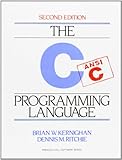Brian W. Kernighan
Brian Wilson Kernighan (pron.: /ÃËkÃÅrnèhæn/; born January 1, 1942) is a Canadian computer scientist who worked at Bell Labs alongside Unix creators Ken Thompson and Dennis Ritchie and contributed to the development of Unix. He is also coauthor of the AWK and AMPL programming languages. The 'K' of K&R C and the 'K' in AWK both stand for 'Kernighan'. Brian Kernighan is currently a Professor at the Computer Science Department of Princeton University, where he is also the Undergraduate Department Representative.
Kernighan's name became widely known through co-authorship of the first book on the C programming language with Dennis Ritchie. Kernighan has said that he had no part in the design of the C language ("it's entirely Dennis Ritchie's work"). He authored many Unix programs, including ditroff, and cron for Version 7 Unix.
In collaboration with Shen Lin he devised well-known heuristics for two NP-complete optimization problems: graph partitioning and the travelling salesman problem. (In a display of authorial equity, the former is usually called the Kernighanââ¬âLin algorithm, while the latter is styled Linââ¬âKernighan.)
Kernighan was the software editor for Prentice Hall International. His "Software Tools" series spread the essence of 'C/Unix thinking' with makeovers for BASIC, FORTRAN, and Pascal - and most notably his 'Ratfor' (rational FORTRAN) was put in the public domain.
He has said that if stranded on an island with only one programming language it would have to be C.
Kernighan coined the term Unix in the 1970s. The original term he coined was Unics (for Uniplexed Information and Computing Service, a play on Multics), which was later changed to Unix.[citation needed] Kernighan is also known as a coiner of the expression "What You See Is All You Get (WYSIAYG)", which is a sarcastic variant of the original "What You See Is What You Get" (WYSIWYG).[citation needed] Kernighan's term is used to indicate that WYSIWYG systems might throw away information in a document that could be useful in other contexts. Continue Reading »
The above description is from the Wikipedia article on
Brian W. Kernighan, licensed under
CC-BY-SA 3.0. A full list of contributors can be found
here.

